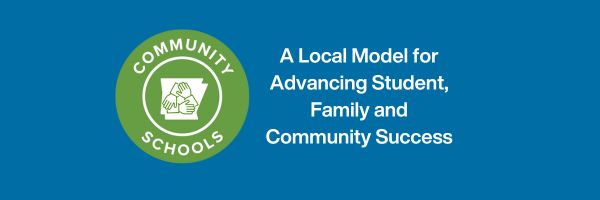Arkansas LEARNS | Educator Workforce
Earlier this year, Forward Arkansas released the State of Education in Arkansas 2023 report. The priorities and recommendations in the report are based on Arkansas data, lessons learned from around the country and most importantly, input from thousands of Arkansans. One of the most important issues that emerged, voiced by all stakeholders in communities across the state, is the need for more great teachers and to better support those teachers currently in schools. In the following blog, our third in a series designed to inform Arkansans about policy changes through the LEARNS Act, we highlight and explain the changes related to our educator workforce.
Headline: LEARNS ushers in some substantial changes designed to bolster the teacher workforce through preparation, compensation, and other financial incentives.
State of play: In our State of Education in Arkansas 2023 report, one of the most emphasized needs by all stakeholders in communities across the state was for more high quality teachers and more support for current teachers, including:
- Identifying and recruiting more people to become teachers and leaders, especially in regions with the greatest shortages
- Better preparing and supporting future teachers and school leaders
- Creating the conditions to keep great educators in schools and classrooms
LEARNS: Through the executive order and the Act, LEARNS seeks to lay the foundation for some critical components of a comprehensive educator talent strategy as highlighted below.
- Incentivizing more people to become teachers by:
- Increasing the starting teacher salary to $50,000, up from $36,000
- Increasing the federal loan repayment from $3,000 to $6,000 for teachers teaching in a subject and geographical shortage area per year for three years (up to $18,000)
- Preparing aspiring educators by:
- Requiring that aspiring teacher candidates who receive a degree or alternative certification from a state-approved educator preparation program (EPP) complete a year long teacher residency (think of it as a hands-on internship) alongside an experienced mentor by Spring of 2027
- Making preparation for teaching affordable through the Arkansas Teacher Academy Scholarship Program Act
- Ensuring future teachers are equipped to leverage the science of reading within the classroom by auditing EPPs every three years for compliance to the Right to Read Act
- Developing, supporting and retaining existing educators by:
- Identifying excellent teachers and awarding annual bonuses of up to $10,000 through the Merit Teacher Incentive Fund Program.
- One layer deeper: Excellent defined by outstanding student growth (using value-added growth model), teachers serving as mentors, aspiring teachers participating in yearlong residencies, teachers instruction in subject areas or geographically areas identified as critical shortage areas, and other categories.
- Providing teachers with 12 weeks of maternity leave
- Increasing all teacher salaries by $2,000 for those already above the new $50,000 starting salary
- Identifying excellent teachers and awarding annual bonuses of up to $10,000 through the Merit Teacher Incentive Fund Program.
Potential sticking points: There are a few components of LEARNS that are more controversial than others:
- Repeals the Teacher Fair Dismissal Act, which served as one of the states previous policies surrounding educator evaluation and job performance procedures
- Supporters: Could support superintendents towards building a more effective workforce
- Opponents: Could weaken teachers trust in their job security
- Repeals the state’s teacher salary schedule based on tenure or degree
- Supporters: Could equalize the playing field for smaller districts to compete for quality candidates
- Opponents: Could devalue seasoned teachers already at the top of the pay scale
- Creates the Merit Teacher Incentive Fund Program
- Supporters: Could award teachers actively supporting student growth
- Opponents: Could exclude those important positions not directly tied to summative assessments and student academic growth (i.e. art teachers, coaches, etc)
What we are watching:
- The production of mentors: The requirement for a supported year-long residency for every new teacher will require a large number of high quality, experienced mentor teachers. Annually our EPPs produce about 1,800 teachers, with nearly 65% of them staying to teach in Arkansas. Therefore, between our aspiring teachers and our novice teachers (~6,200), about 7,300 individuals will need access to quality mentoring and at a ratio of 1 to 3, that's about 2,400 mentor teachers. To meet the requirements in LEARNS and our needs in the state, we must move fast to identify and train large numbers of current teachers to be mentors.
- Long-term Cost and Sustainability: The various incentive programs will cost the state and districts additional money to sustain. This presents an opportunity for policymakers to reevaluate and make changes to the funding formula like other southern states have begun to do, such as Tennessee.
- Who stays and leaves the profession? The removal of the step and ladder pay scale in theory has the greatest effect on our more experienced teachers. Will we see an exodus of teachers with more years of experience? On the other hand, an increase in starting salary could lead to more people entering the profession and also attract individuals with different skill sets and qualifications. Will we have a large influx of new individuals choosing the teaching profession?
The bottom line: The policies within LEARNS are designed to better equip and support our future and current educator workforce as well as those building it. But some of these policies are more complex than others and it is important to understand the varying impact they have on all stakeholders within the system. And as always, the quality of implementation, especially given the fast timelines, will determine the ultimate impact on Arkansas’s educator workforce.
Be on the lookout: Ensuring that every student has access to great, prepared and well supported educators is a core priority of Forward Arkansas. While we have a long way to go as a state, we are also taking big steps to put the foundation in place to address this challenge. As our students and educators return to school, we are launching a special newsletter series called “Educate Arkansas”, where monthly we will take a deep dive into the positive happenings around developing our educator workforce. Make sure you don't miss it!
 Malachi Nichols
Malachi Nichols 

